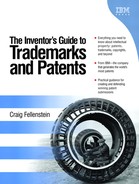Meta-Search Engines
Meta-search engines simultaneously search many search engines, handing the search request to the other engines for execution in parallel. Meta-search engines are also referred to as parallel search engines, multi-threaded search engines, or mega-search engines.
These tools offer very powerful search capabilities across a wide variety of global Internet content. Generally speaking, there are two types of meta-search engines that can be easily found on the Internet today.
The first type of meta-search engine involves a separate retrieval for relatively comprehensive results. This type of engine searches a number of other search engines and does not collate the search results. What this means is that you must then sort through a separate list of results from each engine that was searched; you will often see the same result more than once, across the different search engine results.
Some meta-search engines require you to visit each site to view your results. With this type of meta-search engine, you can retrieve comprehensive and sometimes overwhelming results. Other meta-search engines retrieve the results back to their own sites and give you somewhat more limited views of the results. An example of this type of meta-search engine is wy metasearch.[4]
[4] For more information, please reference http://www.yurweb.com.
The second type of meta-search engine involves collated retrieval for selected results. This type is the more common meta-search engine and returns a single list of results, often with the duplicate files removed. This type of engine always brings the results back to its own site for viewing.
In these cases, the meta-search engine retrieves a certain maximum number of files (allowed by the individual search engines) it has searched, limited after a certain point, as the meta-search is processed. The number of documents retrieved may determine the “limit” or it may by the amount of time the meta-search engine spends at the other sites. Some of these services give the user a certain degree of control over these factors.
All of this power and capability to search the Internet has two implications:
These meta-search engines return only a portion of the documents available to be retrieved from the individual engines they have searched.
The results retrieved by meta-search engines can be highly relevant since they are usually retrieving the first items from the relevancy-ranked list of hits (or retrievals) returned by the individual meta-search engines.
Meta-search engines interact with several commercial search engines all at once. Meta-search engines and do not “crawl” the Web, or maintain a database of directories and Web pages. Meta-search engines act as a middle-agent of sorts, presenting the query to the other commercial search engines, acting as one of its service agents, only to deliver back to the meta-search engine the final search results for that specific search engine. Because these commercial meta-search engines can sometimes produce very different results, these engines provide a quick way to determine which independent engines are retrieving the most results for your information gathering needs.
Some search engines may vary in their capability to receive and interpret complex searches into generic terms that they, as one of many search engines, will understand. For this reason, meta-search engines will operate most efficiently with simple searches. The issue surrounds the query language interpretation capabilities of the search engines, parsing capabilities, and performing in a very specific search syntax language (or programmatic) translation recognized by the search engine. So, given this, what is most effective in a meta-search engine is the “least common denominator” of the search parameters—in other words, a simple search.
What follows are several good examples of meta-search engines:
Dogpile searches eight (or more) search engines and subject directories as well as newsgroups, business news, and newswires. Dogpile supports full Boolean logic and phrase searching.[5]
[5] For more information, please reference http://www.dogpile.com.
Vivisimo clusters results from eight (or more) search engines and subject directories into convenient topic categories. Utilize implied Boolean logic (+/-) and phrase searching.[6]
[6] For more information, please reference http://vivisimo.com.
MetaCrawler submits queries to seven (or more) search engines and subject directories. Utilize implied Boolean logic ((+/-) and phrase searching.[7]
[7] For more information, please reference http://www.metacrawler.com.
Fazzle searches several search services on the Web; Fazzle also offers specialty searches of downloads, images, videos and other topics from the deep Web.[8]
[8] For more information, please reference http://www.fazzle.com.
Profusion allows the results to be sorted by relevance, title, URL and source; this offers a customizable advanced search form, enabling the search services to better match the search style. This also offers topical searches across the deep Web.[9]
[9] For more information, please reference http://www.profusion.com.
Query Server offers queries of the general Web, health, financial, or government sites—and organizes results by concept, site, or both.[10]
[10] For more information, please reference http://www.queryserver.com.
You can see a larger list of commercial meta-search engines by visiting the Internet Search Engines Web site.[11]
[11] For more information, please reference http://library.albany.edu/internet/meta.
